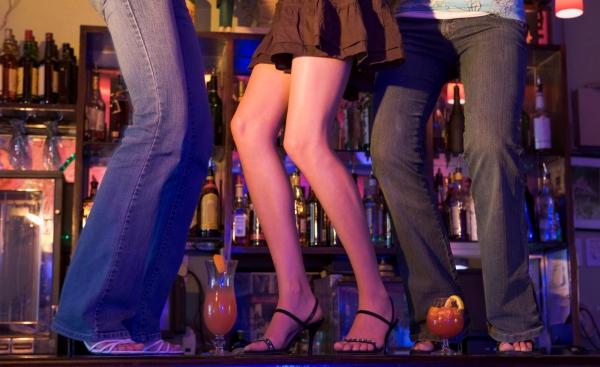New Bar? Your Alcohol Tolerance May Be Lower, Study Finds

Drinking alcohol in an unfamiliar place makes us lose our inhibitions more than drinking at the same old haunt, a new study says.
The results show that people who drank in a new setting were half as likely to stop themselves from giving an inappropriate response during a computer task as people drinking in a familiar place.
That means that "tolerance isn't portable," said Mark Fillmore, a professor of psychology at the University of Kentucky. "Just because you can function well while drinking in known situations doesn't mean you take that anywhere. It's not a personal attribute."
Since the 1950s, researchers have theorized that tolerance to alcohol develops in familiar environments, but this idea has only been shown in animal studies. By showing that people's inhibitions differ in different settings, the new study is the first to show that human tolerance for alcohol is also subject to this effect.
"Few studies demonstrate truly new findings," but this study does, said Fillmore, who researches the effects of alcohol on inhibitions but was not involved in this work. "It's an important study."
Tolerance keeps impulses in check
To set up the experiment, researchers at the University of Birmingham in England gave 24 students alcoholic drinks in one setting, for three drinking sessions, to familiarize them with drinking in that setting. In a second setting, researchers gave the students "placebo drinks," that did not contain alcohol but otherwise tasted like the alcoholic drink.
Sign up for the Live Science daily newsletter now
Get the world’s most fascinating discoveries delivered straight to your inbox.
To test their inhibitions, the students drank the alcoholic drink in one of the settings. While drinking, they completed computer-based tasks designed to measure inhibitions — for example, words appeared on screen and students were instructed to press a button whenever a "happy word" appeared, but were told to hold back from pressing it when a "sad word" appeared. The inability to hold back when a sad word appeared indicates a loss of inhibitions.
The researchers found that when participants drank alcohol in the setting where they'd previously had the placebo drink, they pressed the button incorrectly about 12 times per session. But when they drank alcohol in the setting where they'd previously had the alcoholic drink, the number dropped to six.
While real world behaviors are certainly more complex, the computer test is a good stand-in for someone's ability to hold back an inappropriate response, Fillmore said. "Saying insulting things, getting in fights, continuing to drink when you should stop, driving when you shouldn’t — all of these behaviors result from lost inhibitions," he said.
What causes tolerance?
The study shows that "the amount of alcohol in the central nervous system in not the sole determinant of how impaired a person is," Fillmore said. "Other factors are involved."
Our heightened tolerance in familiar settings might be brought about by our expectations, Fillmore explained. When you drink in a certain setting, your central nervous system begins to anticipate receiving alcohol whenever you enter that setting, so it might become hyperexcited and counter some of alcohol's effects. "That's what we think tolerance is," he said.
"It's not that people are tolerant, it’s a combination of people and a certain situation," he said. [Related: Holding Their Liquor Makes Women Much Sicker than Men]
A weakness of the study was that in a second experiment, involving a different computer task, the researchers found no significant effects of drinking in familiar settings, Fillmore said. However, there were reasons to think that computer test was not sensitive enough to detect such effects, so Fillmore said he would like to see the study replicated or repeated.
The study was published online Wednesday (Aug. 23) in the journal Alcohol and Alcoholism.
Pass it on: Your tolerance to alcohol may be higher in some settings than in others.
This story was provided by MyHealthNewsDaily, a sister site to Live Science. Follow MyHealthNewsDaily managing editor Karen Rowan on Twitter @karenjrowan. Find us on Facebook.











